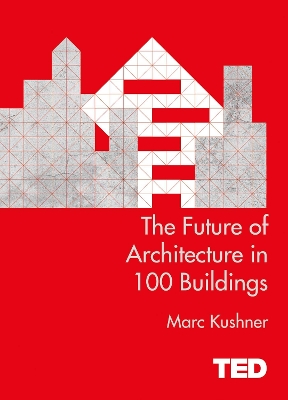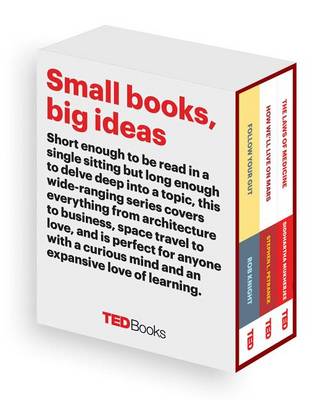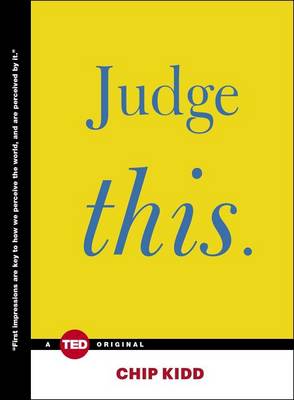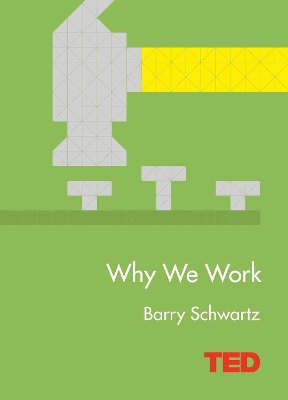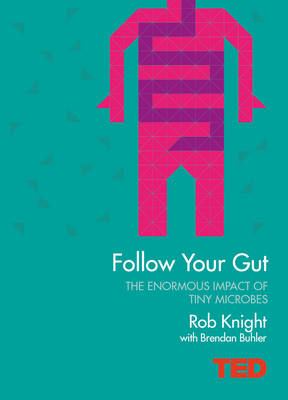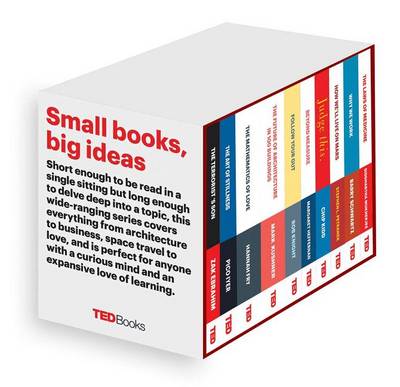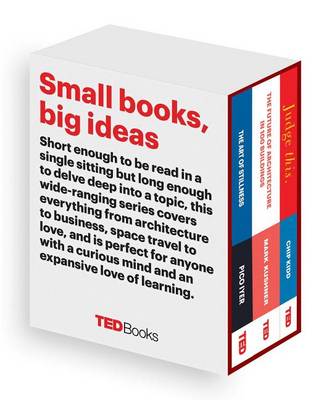Ted Books
8 total works
A pavilion made from paper. An inflatable concert hall. A building that eats smog. A bridge that grows grapes. THE FUTURE OF ARCHITECTURE IN 100 BUILDINGS captures the soaring confidence, the thoughtful intelligence, the futuristic wonder, and at times the sheer whimsy of the world's most inspired and future-looking buildings.
As author Marc Kushner explains, 'The future of architecture is not one of any dominant style, but rather a world of constant innovation and experimentation.' Like an architectural cabinet of wonders, the book captures this glorious global diversity. From soaring steel towers to bamboo bungalows; from iconic monuments to ingenious children's playgrounds, each page offers an unexpected glimpse of architecture's potential.
Through his book and TEDTalk, Kushner suggests that in the age of social media, buildings speak louder than ever. Everyone with a smartphone has become an architectural photographer, snapping selfies with the world's most photogenic buildings. And this constant stream of photos ensures that architecture is now in conversation with the world. Its future matters more - and to more of us - than ever.
Aimed at this new, broad audience for architecture, this is an essential and delightful guide to the future being built around us.
Ted Books Box Set: The Science Mind
by Rob Knight, Brendan Buhler, Stephen Petranek, and Siddhartha Mukherjee
It sounds like science fiction, but award-winning journalist Stephen Petranek considers it fact: within 20 years, humans will live on Mars. We'll need to. In this sweeping, provocative book that mixes business, science and human reporting, Petranek makes the case that living on Mars is an essential back-up plan for humanity, and explains in fascinating detail just how it will happen.
It's clear that the race is on. Private companies (driven by iconoclastic entrepreneurs like Elon Musk and Sir Richard Branson); Dutch reality show/space mission Mars One; NASA and the Chinese government are among the many groups competing to plant the first stake on Mars and open the door for human habitation. For Elon Musk, it's the "ultimate awesome thing." For other entrepreneurs, it's about competition and opportunity. For NASA, the Chinese government and the leagues of other private companies and foreign nationals racing to get to Mars, there are more urgent reasons as well: life on Mars has potential life-saving possibilities for us on earth. Depleting water supplies, overwhelming climate change and a host of other disasters - from terrorist attacks to meteor strikes - all loom large. We must become a space-faring species to survive.
In this close-up narrative chronicle, Petranek introduces the circus of lively characters all engaged in a big-money, big-drama effort to expand the limits of human knowledge - and life - by being the first to settle on the Red Planet.How We'll Live on Marsbrings first-hand reporting, interviews with key players and extensive research to bear on the question of how we can best, and most plausibly, expect to see life on Mars - within the next 20 years. Petranek can also be seen discussing his fascinating ideas in his TEDTalk 10 Ways The World Could End.
First impressions are everything. They dictate whether something stands out, how we engage with it, whether we buy it, and how strongly we feel. This is especially true when it comes to design. And design is all around us, secretly shaping our world in ways we rarely recognise. Except if you yourself are a designer, like Chip Kidd.
In Judge This, the reader travels through a day in the life of renowned designer Chip Kidd as he takes in first impressions of all kinds. We follow this visual journey with Kidd as he encounters and engages with everyday design, breaking down the good, the bad, the absurd and the brilliant as only a designer can. From the design of the paper you read in the morning to the subway ticket machine to the books you browse to the smartphone you use to the packaging for the chocolate bar you buy as an afternoon treat, Kidd will reveal the hidden secrets behind each of the design choices, with a healthy dose of humour, expertise and, of course, judgment as he goes.
Kidd's observations on the power of first impressions resonate well beyond the objects he's examining. The simple (and often hilarious) wisdom he offers holds meaning for anyone in business, who needs to make a first impression on colleagues or customers. His visual tour of the world around him will hold and interest anyone with a sense of curiosity about popular culture, design and New York.
Why do we work? The question seems so simple. But Professor Barry Schwartz proves that the answer is surprising, complex and urgent.
We've long been taught that the reason we work is primarily for a paycheck. In fact, we've shaped much of the infrastructure of our society to accommodate this belief. Then why are so many people dissatisfied with their work, despite healthy compensation? And why do so many people find immense fulfillment and satisfaction through "menial" jobs?
Schwartz reveals exactly how the false idea that the goal for work should be pay came to be, how we came to believe that paying workers more leads to better work, and why this has made our society confused, unhappy and has established a dangerously misguided system.
Ultimately, Schwartz proves that the root of what drives us to good work can rarely be incentivized, and that the cause of bad work is often an attempt to do just that. With great insight and wisdom, Schwartz illuminates the path for readers to take their first steps toward understanding, empowering us all to find great work.
Schwartz is also the author of The Paradox of Choice: Why More Is Less, which has been translated into twenty languages. He can be seen discussing his ideas in his TEDTalks The Paradox of Choiceand Using Our Practical Wisdom.
Today we study the brain with painstaking detail. But we largely ignore what might prove to be the most important part of our body: the trillions of microbes that live inside us, especially in our gut. Increasingly, it looks like the harmless bacteria we each have - or lack - may hold the key to our most vexing health issues, including obesity, allergies, asthma and digestive problems. Different people - even those in the same ethnic group, geographic region and immediate family - may have up to a 90% difference in the contents of our gut. (Compare this with our DNA, where all humans, worldwide, are 99.99% the same.) Evidence shows that small changes in the microbes present (altered by antibiotics, diet, geographic region, and so on) may affect weight, likelihood of disease and even psychological factors like risk-taking behaviour.
Knight and Buhler explore the previously unseen world inside our bodies, in dynamic, accessible prose geared towards a general audience. With a practical eye towards deeper knowledge and better decisions, the book includes a detailed tour of our "micro-biome" as well as an exploration of the known effects of antibiotics, probiotics, diet choices, birth method, and access to livestock on our children's lifelong health. The book will guide readers on how to learn about their own "microbiome" and take steps towards understanding and improving their health, using the latest research as their guide.
Ted Books Box Set: The Completist
by Zak Ebrahim, Hannah Fry, Pico Iyer, Marc Kushner, Margaret Heffernan, Chip Kidd, Stephen Petranek, Barry Schwartz, Siddhartha Mukherjee, and Rob Knight
